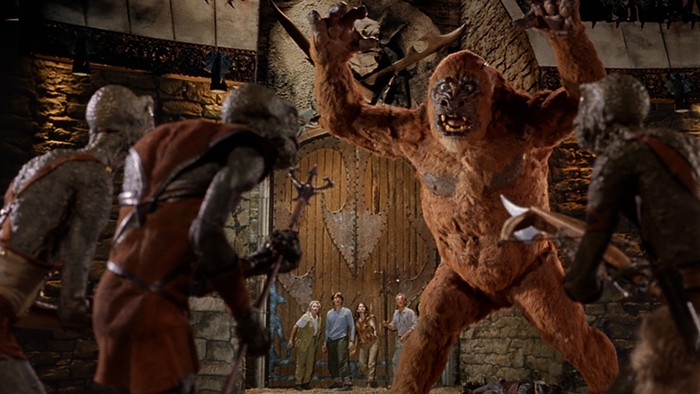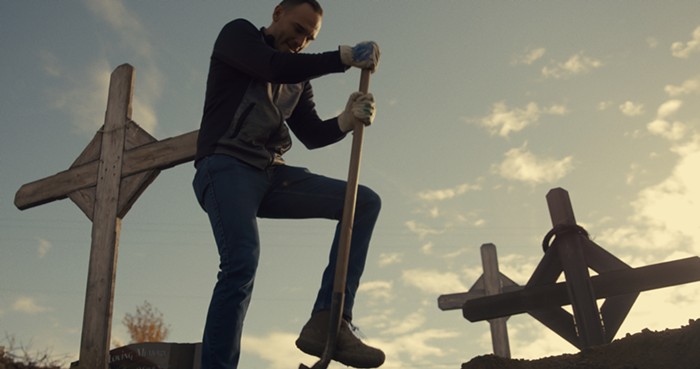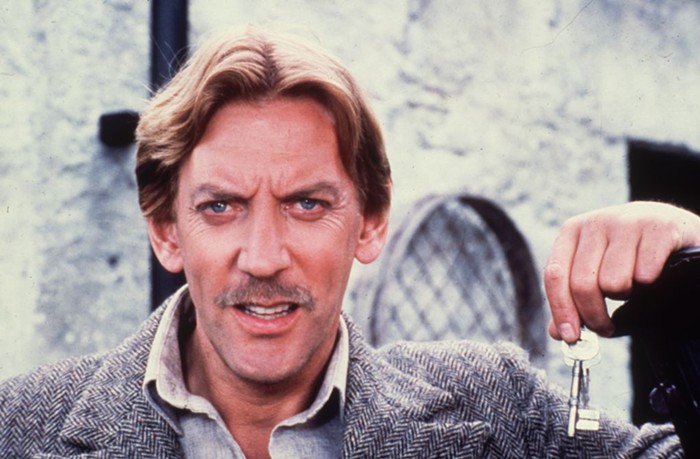
All day yesterday and much of Sunday, I went back and forth on a question that has plagued journalists since time immemorial (and/or 2016-ish): Should I bother to write a stupid blog post about that stupid Guardian piece about David Lynch?
Admittedly, of the many things Donald Trump has ruined, culture writing ranks low on the overall index of injustice. Nevertheless, people need jobs and I am, technically, a person, so I devoted several hours to pondering the fact that a man who is both a great artist and a total kook said a few somewhat cryptic (sidebar: David Lynch’s scale for “cryptic” is different than yours) words about the current president that could easily be read—and more to the point tweeted—as an endorsement of said current president, and, further, that what we charmingly refer to as the online “conversation” (which is really more like a tirade publicly kickfucking a diatribe while a harangue lectures a screed in the bleachers) would inevitably grind its way to the question of whether or not it was now either unacceptable or indeed irresponsible to “support” Lynch’s work.
This, by the way, was what Lynch said:

136 words in a 2,000-word story on the subject of Lynch’s new book. Perfectly viable subject matter for a profile of this kind. The sort of quotes that are either shrewdly naïve or naïvely shrewd depending on what kind of instincts the subject has. Also the sort of quotes that make a writer think either “ka-ching!” or “good grief,” depending on what kind of publication they’re writing for.
In any event, I think we can all agree that by not writing about this ludicrous installment in the infinite serial that is the Trump presidency, I definitely took the high road, and did so because I saw Blue Velvet at the Crest in 1986, and my consciousness was irrevocably exploded.
Then this motherfucker occurred, because it had to:

Which, in turn, guaranteed that the ed biz, from the A.V. Club to Variety, from Breitbart to TMZ, was going to put the interview, and the ideas expressed within it, into Clyde’s Car Crusher to yield misleadingly irresistible headlines like this:
David Lynch likes the way Donald Trump has "disrupted" everything https://t.co/CzpRyFkK9K pic.twitter.com/EQjOiqmCPe
— The A.V. Club (@TheAVClub) June 24, 2018
David Lynch: Trump could be remembered among great presidents https://t.co/qBuycsRTcV pic.twitter.com/iDzNtDu4ZN
— The Hill (@thehill) June 25, 2018
David Lynch didn't vote for @realDonaldTrump, but it sounds like he's warming up to the president. (via @TooFab) https://t.co/DMIdAy3oz6
— TMZ (@TMZ) June 24, 2018
Legendary filmmaker David Lynch said Saturday that President Trump could go down to be one of the greatest presidents in U.S. history, “because he has disrupted the thing so much. No one is able to counter this guy in an intelligent way.” https://t.co/ecI39eqIBw pic.twitter.com/dqmwc9o4HZ
— Fox News (@FoxNews) June 26, 2018

Which, in turn, guaranteed that Twitter would turn once again into the thing Twitter essentially always is: a long parade of people on both sides of the Gulf of America publishing a series of formally and tonally indistinguishable, occasionally humorous (though usually only in theory), declarations of affinity. Not thoughts so much as thought ads. Not arguments so much as synonyms. Not resistance so much as ideological batch production, based on the sincere and increasingly desperate yearning to contribute meaningful ideas to a world that cares about as much for meaning as David Lynch cares for three-act narratives.
You don't have to have good or coherent politics to make great art. It really helps, but it is not a prereq. David Lynch liked Reagan, James Brown liked Nixon.
Laterally: making great art can make you very wealthy, and wealth, a disease, can ruin your politics.
— Kaleb Horton (@kalebhorton) June 25, 2018
We may never understand the appeal to David Lynch of a presidency that, using kitsch and dream logic, has transformed ordinary American life into a phantasmagorical hellscape
— Robbie Collin (@robbiereviews) June 26, 2018
Donald Trump tweeting about David Lynch is really the worst thing to ever happen on this stupid fucking website.
— BenDavid Grabinski (@bdgrabinski) June 25, 2018
David Lynch’s comments are just as dumb as Susan Sarandon’s but y’all won’t drag him like you do her pic.twitter.com/jRUOHrTsBv
— Ira (@ira) June 26, 2018
I guess we all have to hate David Lynch now, don't we.
*sigh* this is so tiresome.
— Jeff B. (@EsotericCD) June 25, 2018
Lynch responded today with a Facebook post in which he attempted to clarify what he was actually saying. “Unfortunately," he wrote, addressing the president, "if you continue as you have been, you will not have a chance to go down in history as a great president. This would be very sad it seems for you — and for the country. You are causing suffering and division.”
But the damage runs a lot deeper than statements and reactions and clarifications. Even typing the words "Lynch responded today with a Facebook post" just now felt like a flu-like symptom. The whole vulgar webisode took me right back to that special Twister mat where your left foot is on Contempt, your right foot is on Outrage, your right hand is on Dread, and your left hand just flicked the spinner, hoping against hope that it doesn’t land on Part of the Problem.
It also reminded me of one of my favorite bits of dialogue from a Lynch movie—the kind of language that lets you know a director capable of the most outlandishly discursive cinematic devices you’ve ever seen also resides on planet Earth, and is smarter and more sensible than the world of “get a load of the crazy weirdo” profiles would have you believe:
Sailor: Did I ever tell you that this here jacket represents a symbol of my individuality and my belief in personal freedom?
Lula: About 50,000 times...
The question of whether Lynch was somehow “endorsing” Trump by observing, as many sharp, committed Trump haters have observed, that Trump’s ascent has ramifications far bigger than the man himself, and indicates lots of dire truths about the decrepit state of our democratic institutions, is demeaning to everyone involved, and everyone not involved. (And let's not even get started on the performance-based consumption ethic—apologies to J.D.—of celebrity endorsements.)
Defending Lynch against that charge—in light of the precedent of his art, the actual words he spoke, his childhood in Missoula and Spokane—is microscopically less demeaning.
And even thinking about Trump’s celebration of the putative endorsement… well, obviously, everything about Trump is demeaning. Mortification is his métier. Which was Lynch’s whole—aw, skip it.
It’s perfectly understandable why so many people are so consumed with disdain for Trump that any public statement about him not containing an explicit denunciation—i.e. one that is clearly, mathematically discernible to any listener, like an unambiguous happy ending in a film—strikes them as tantamount to treason, but it’s also perfectly understandable that such dogmatic essentialism is the enemy of both reason and language, and represents Trump’s greatest, and worst victory over everything that used to matter.
Which reminds me of yet another great Lynch line, this one from Blue Velvet, which loses none of its horrifying lustre in the glare of this cheap little affair. It’s spoken by Dorothy Vallens, a woman being ritually extorted and exploited by criminals who have kidnapped her son. After she has dark, violent sex with the naïve young man who has stumbled onto her predicament, she says these haunting words:
“I have your disease in me now.”
If I ever suffer the ignominy of meeting Donald Trump, who is kind of Frank Booth without the refinement, I hope I have the presence of mind to say the line just as Isabella Rosselini did, on behalf of every citizen in the world.


















